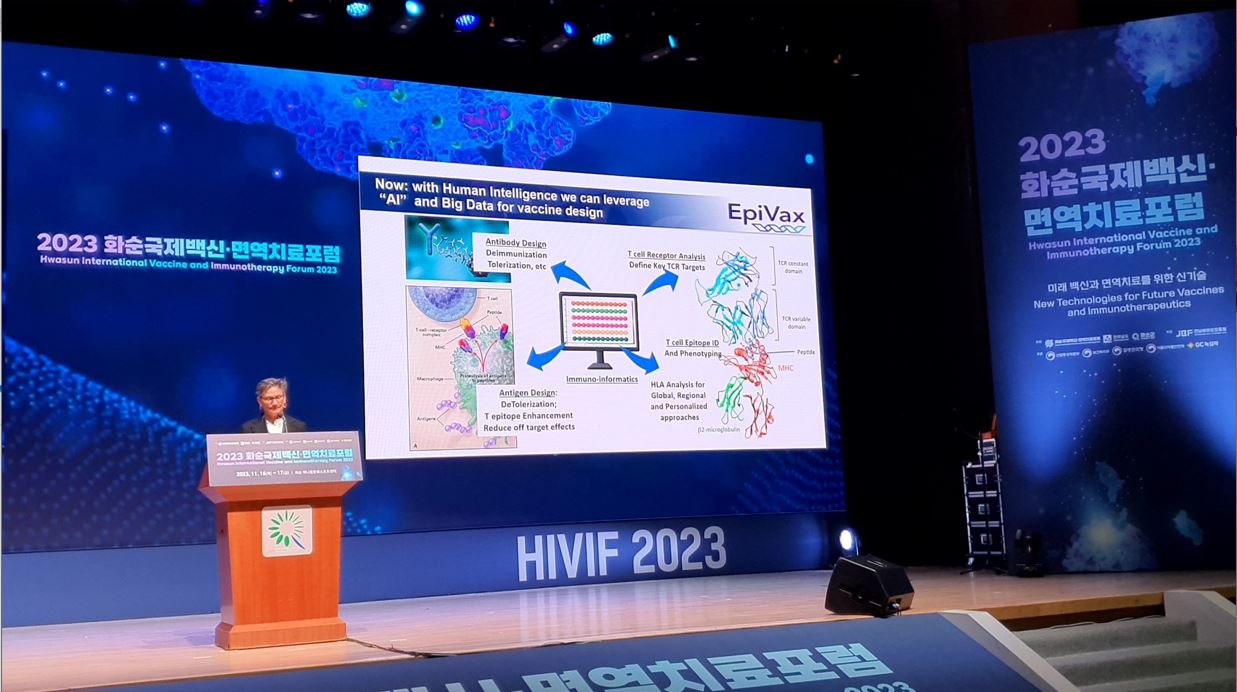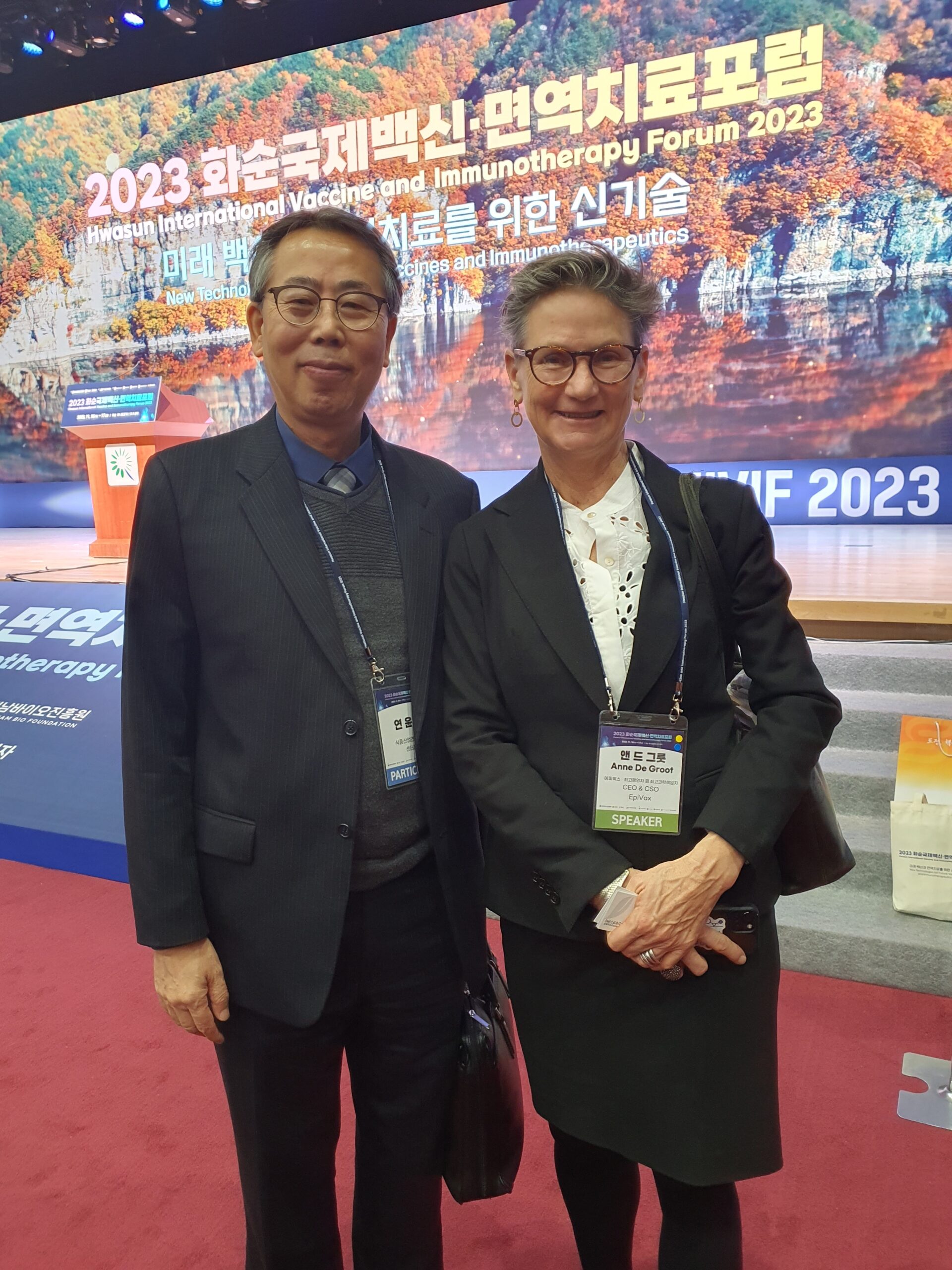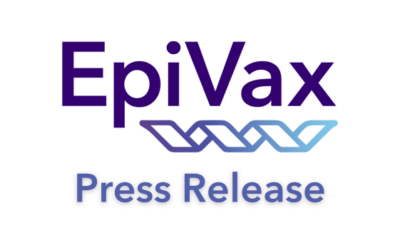EpiVax CEO Annie De Groot was one of three plenary session speakers at a recent international forum on vaccines organized by Joon Rhee. Her topic was ‘Better, Safer, and Personalized Vaccines will Result from Human + Artificial Intelligence’. Other speakers during this session were Professor Chaok Seok, PhD, of Seoul National University, Seoul Korea, and Yoshimasa Takahashi, PhD, Director Research Center for Drug and Vaccine Development, National Institute of Infectious Disease, Japan.

This forum was developed to highlight the important role that vaccines will play in the regional economy of the Hwasun region of Korea, where the government is making significant investments in mRNA vaccine production, cellular therapy products, and subunit vaccine production. New tools are being applied to accelerate their development, including what has been called ‘computational vaccinology’, representing the convergence of Human + Artificial Intelligence (AI). Dr. De Groot described the transformative potential of AI and ‘big data” being applied to developing new vaccines in her talk.
EpiVax’s CEO views vaccine development as a 10-step process, where AI can be integrated. These steps include “defining immunity”, “identifying the critical antigens”, “identifying a model” that can be used to approximate the protective effect of a vaccine, and consideration of “correlates of immunity”. For the latter, investigations are often centered on humoral immune response, however, the critical role of T cell-mediated immunity and its influence on humoral immunity has been overlooked.
By parsing entire genomes and hundreds of thousands of variants, computational immunology can help define broadly conserved T cell epitopes and ‘phenotype’ them in silico, while covering a wide array of human HLA genotypes. AI enables evaluation of pre-existing T cell responses that may dampen immune responses to vaccines.
Dr. De Groot believes that the true promise of vaccines will be realized when AI is used to develop “made to order” vaccines based on individualized HLA profiles. While the personalized approach is already being applied to cancer vaccine development, it is also relevant for infectious chronic infectious diseases (e.g. HIV or Hepatitis C) ensuring that vaccines target highly conserved epitopes from variant strains that are recognized by the individual’s immune system. She looks forward to applying the transformative power of AI and computational vaccinology to augmenting safety, efficacy, and personalization in vaccine development, ushering in a new era of better, safer, and individually tailored vaccines.

Reference:
De Groot AS, Moise L, Terry F, Gutierrez AH, Hindocha P, Richard G, Hoft DF, Ross TM, Noe AR, Takahashi Y, Kotraiah V, Silk SE, Nielsen CM, Minassian AM, Ashfield R, Ardito M, Draper SJ, Martin WD. Better Epitope Discovery, Precision Immune Engineering, and Accelerated Vaccine Design Using Immunoinformatics Tools. Front Immunol. 2020 Apr 7;11:442. doi: 10.3389/fimmu.2020.00442.


